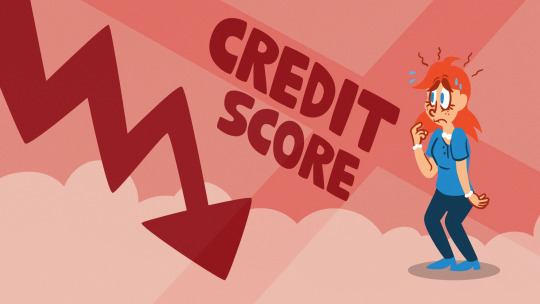#cdfi
Explore tagged Tumblr posts
Text
https://fluxsolutions.co/cdfi-solution/
CDFI (Community Development Financial Institution) Solutions are the strategies and tools used by CDFIs to promote economic growth, social inclusion, and access to financial services in underserved communities. These organizations are unique in that they concentrate on assisting low-income, minority, or rural communities where traditional financial services are either unavailable or limited.
1 note
·
View note
Photo

🎙#92 | 🆕 ¡UNA NUEVA TEMPORADA DE LATINO LIBRE USA! JUAN MESA 👨🏻🇨🇴: Juan Meza, colombiano, periodista, actual gerente de comunicaciones comunitarias de la organización Mission Economic Developement Agency (MEDA), situada en San Francisco, dedicada a programas de desarrollo de negocios, una institución financiera comunitaria, (CDFI), donde dan acceso a capital, a inmigrantes que a través de bancos tradicionales no podrían tener acceso a ese capital, para poder emprender su negocio. 𝗘𝗦𝗧𝗘 𝗘𝗣𝗜𝗦𝗢𝗗𝗜𝗢 👉 https://www.hispanicsolutionsgroup.com/episodio-nuevo/ep-92-juan-mesa-porque-la-comunidad-latina-viene-a-este-pais-a-trabajar-trabaja-mucho-trabaja-muy-duro-y-no-tiene-acceso-a-los-recursos-que-tienen-las-personas-con-documentos/
#LatinoLibreUSA#JuanMeza#MEDA#DesarrolloDeNegocios#Inmigración#Colombia#Periodista#ComunicacionesComunitarias#CDFI#ReformaMigratoria#AccesoACapital#Emprendimiento#TrabajoDuro#ComunidadLatina#OportunidadesEmpresariales#DesarrolloEconómico#InclusiónFinanciera#TrabajoYFamilia#HorasDeTrabajo#ReformasMigratorias#TrabajoComunitario#AccesoAResources#Documentación#HistoriasDeInmigrantes#CambioSocial#EmpoderamientoComunitario#SanFrancisco#DesafíosInmigrantes#OportunidadesDeCrecimiento
0 notes
Text
Navigating Minority-Owned Business Growth Amid DEI Policy Changes
Minority-owned businesses have long been vital contributors to the U.S. economy, driving innovation, job creation, and community development. Historically, these enterprises have faced challenges such as limited access to capital and systemic inequities. In recent years, various policies have been implemented to promote equity and economic empowerment for minority entrepreneurs. However, the…
#business support programs#CDFIs#DEI policy rollback#economic empowerment#federal contracts#minority entrepreneurs#minority-owned businesses#policy changes#private sector support#state and local initiatives
0 notes
Text

Actor and debt campaigner Michael Sheen has joined calls for the government to pass legislation to help tackle the crisis of unaffordable credit and problem debt in the UK. In 2022- 2023, more than 9 million were declined for credit, with millions relying on pay-day-lenders and buy-now-pay-later schemes with high interest rates. At its worst, lack of access to affordable credit means hundreds of thousands of people find themselves turning to loan sharks, while viable businesses remain stuck, unable to develop and create jobs. Campaigners are calling for a Fair Banking Act to help ensure that everyone can access essential financial services and support.
Speaking at an event in Parliament on Monday, Sheen said:
“Anyone can find themselves in a place where they need credit to make ends meet or to get through a difficult time. The lack of affordable credit for people on lower-incomes is harming individuals and families, but also businesses and communities. Whole regions are seeing their growth held back. We can’t keep waiting and hoping that things will get better. We need something to change now. The Fair Banking Act could be the thing which really makes the difference”.
The event in parliament was organised by the All Party Parliamentary Group on Fair Banking, alongside the Fair Banking for All Campaign – a group including credit unions, Community Development Finance Institutions (CDFIs), fintechs, charities and policy experts who are calling for a Fair Banking Act to help increase access to affordable credit. MPs, peers and financial regulators were among the attendees.
Lloyd Hatton MP, chair of the APPG, said:
“We need a Fair Banking Act to help increase affordable lending in every corner of the country, ensure small businesses have access to the financial support they need, and guarantee that nobody is financially excluded by the mainstream banks. Only then will we deliver sustained economic growth across the whole of the UK.”
Before the election, Labour announced that financial inclusion would be a priority for them in government, with plans being developed for a comprehensive national Financial Inclusion Strategy. The Fair Banking for All Campaign is calling for a Fair Banking Act to be a central pillar of this strategy, to help grow the responsible finance sector. The idea is based on a successful example from the US, where similar legislation has successfully increased access to financial services and support for people on low-incomes and from marginalised communities.
As well as leading mainstream banks to improve their own provision of affordable credit for underserved communities, the proposed legislation would also incentivise partnerships between high-street banks and institutions such as credit unions and CDFIs, which are often best placed to provide tailored services that meet the needs of individuals and small businesses who have been turned down by larger institutions.
Recently published research from the Fair Banking for All Campaign estimated that a Fair Banking Act in the UK could increase fair and affordable lending to individuals by £2bn a year – equivalent to the total amount owed to loan sharks. This would help to pull the rug out from under the illegal lending market, by providing people with a safe and affordable alternative when they’re in urgent need. Additional support to small businesses could create or maintain just under 10,000 jobs over five years, including in some of the most economically deprived parts of the country – where small businesses currently find it hardest to get loans from high street banks.
Robert Kelly, chief executive of the Association of British Credit Unions Ltd, was another of the speakers at the event. He said:
“We need more humanity in our banking system. At a time when more and more people need access to affordable credit, their options are becoming more and more limited. People are being turned down by high-street banks because of their income level or credit score, and so they’re turning to high-cost credit or illegal lending. Credit unions give them an alternative. The sector continues to serve communities and employers across the country at record levels through the provision of ethical and responsible products and services. There’s so much demand out there for this kind of alternative – but we need a Fair Banking Act so we can grow to meet that demand, and help millions more people”
Theodora Hadjimichael, chief executive of Responsible Finance which represents CDFIs in the UK, said:
“Community Development Finance Institutions (CDFIs) invest into underserved places and people, unlocking potential for businesses, social enterprises and households. For economic growth to happen, we need lenders that get to know businesses and understand people’s lives, make fair lending decisions that take these into account, and offer affordable finance, and incentives to ensure that growing demand for affordable, ethical, credit can be met. That’s why Responsible Finance is part of the campaign calling for a Fair Banking Act”.
28 notes
·
View notes
Text
Millions of dollars worth of deliveries to food banks in six states have reportedly been abandoned without explanation – a move from the Trump administration that could cripple organizations' abilities to meet the needs of struggling families across the country.
That’s according to a new report in Politico, which highlighted Wednesday that the new development canceling $500 million allocated as part of the U.S. Department of Agriculture’s Emergency Food Assistance Program for food banks deliveries comes after the USDA separately cut two other food programs. Those cuts pulled the plug on over $1 billion in federal spending lined up for schools and food banks to purchase goods from area farms.
Late Friday night, March 14, President Donald Trump issued an executive order telling federal agencies to cut the Community Development Financial Institutions Fund (CDFI Fund) "to the maximum extent." The CDFI Fund, established via the Riegle Community Development and Regulatory Improvement Act of 1994, provides loans to small businesses in poorer areas — urban and suburban as well as rural — that are underserved by banks. Source
3 notes
·
View notes
Text
2 notes
·
View notes
Text





Best Documentary Short Film Nominees for the 96th Academy Awards (2024, listed in order of appearance in the shorts package)
This blog, since 2013, has been the site of my write-ups to the Oscar-nominated short film packages – a personal tradition for myself and for this blog. This omnibus write-up goes with my thanks to the Regency South Coast Village in Santa Ana, California for providing all three Oscar-nominated short film packages.
If you are an American or Canadian resident interested in supporting the short film filmmakers in theaters (and you should, as very few of those who work in short films are as affluent as your big-name directors and actors), check your local participating theaters here.
Without further ado, here are the nominees for the Best Documentary Short Film at this year’s Oscars. The write-ups for the Live Action and Animated Short categories are coming soon. Non-American films predominantly in a language other than English are listed with their nation(s) of origin.
Năi Nai & Wài Pó (2023)
Rarely do both sides of one’s family ever meet. You might expect them to mingle at weddings and funerals. But cohabitation? Such is the case with Taiwanese American director Sean Wang’s two grandmothers in Năi Nai & Wài Pó (paternal and maternal grandmother, respectively), available worldwide on Disney+ and Hulu. Wishing to live closer to family, Wang moved in with his grandmothers Yi Yan Fuei (Năi Nai) and Chang Li Hua (Wài Pó) in their California household during the height of the COVID-19 pandemic. His grandmothers rarely leave the house, even for groceries, and keep their heavy curtains drawn at all hours. As thin beams of sunlight barely stream through the interior’s earthy colors, both grandmothers continue to read the newspaper, sing traditional Chinese music, do their own cooking (I assume someone drops off groceries for them), tease each other about farting in bed, and reflect on their families and their pasts. They know that there are fewer tomorrows remaining, but that will not stop them from living joyously and with love for their grandson, who, though off-screen, they converse with throughout the shoot.
Qualifying for the Academy Awards by wining Best Documentary Short at SXSW in 2023 (in addition to the equivalent prize at AFI Fest), Năi Nai & Wài Pó freely admits that its subjects are playing up their act for their grandson. Observational cinema this is not. But in their sense of exaggerated play there exists a twofold acknowledgement. First, as Năi Nai states, “the days we spend feeling pain and the days we spend feeling joy are the same days spent. So, I’m going to choose joy.” And perhaps most meaningfully to Wang, their playing for the camera is one of many ways they express their love for their grandson. It is an elevated home video, a loving portrait, and a reminder to cherish those who loved us into being.
My rating: 7.5/10
The Barber of Little Rock (2023)
People Trust in Little Rock, Arkansas is a Community Development Financial Institution (CDFI). In other words, it is a non-profit – partially funded by the American federal government – to address issues in creating economic growth and opportunities in some of the most underserved communities in the nation through loans, emergency financial assistance, and housing subsidies. People Trust and its President, Arlo Washington, are the subjects of The Barber of Little Rock (available for free online through The New Yorker), directed by John Hoffman (2021’s Fauci) and Christine Turner (2021’s Lynching Postcards: 'Token of A Great Day'). The film, Oscar-qualified by winning the Grand Prize for Documentary Short at Indy Shorts International Film Festival (Indiana), requires a wealth of context to the issues that it raises, but does not always provide enough – especially how municipal, state, and regional history impacts racism in banking, and vice versa.
Arlo Washington is a fascinating, wonderfully-intentioned person, but the movie spends too much time with him directly stating the piece’s thesis about financial equality and generational poverty to the camera. Most compelling of all were some of the individual appointments at People Trust of regular people simply looking for financial relief or a loan to kickstart a business or make their rent payments. So too Washington's barbering training school – especially a scene when two students are asked to look intently at the other’s faces, to understand the other’s struggles simply through quiet observation. Arlo Washington figures in many of these scenes as well, and those scenes reveal as much, if not more, about the lives of People Trust’s clients than any of his brief lectures can accomplish. Hoffman and Turner clearly had deeply cinematic material to work with that could empower their messaging, and it is a shame they are unable to fully utilize it.
My rating: 7/10
Island in Between (2023, Taiwan)
Ten kilometers away from the Chinese city of Xiamen lies Kinmen, a group of islands under control of Taiwan (the island of Taiwan is 187 kilometers away). Directed and narrated by S. Leo Chiang and distributed by The New York Times, Island in Between is Chiang’s meditation on not only Kinmen’s precarious geography and its political status, but his own identity of being American, Chinese, and Taiwanese – three separate identities that interconnect, but are forever distinct. Like many viewers, I was unaware of Kinmen’s existence before viewing Island in Between. This film is most valuable in introducing audiences to a place in some ways frozen in the mid-twentieth century, not so much capturing the spirit of the place and understanding its history.
During visits to mainland China in the late 2000s, Chiang, Taiwanese-born and American-raised, was struck by how vibrant the mainland was – something unrecognizable from “the communist wasteland [he] learned about in school.” In the years since, the crackdown on Hong Kong’s democracy, the COVID-19 pandemic, and increased political tensions between China and Taiwan have complicated his feelings towards the mainland. As a Vietnamese American, I easily saw parallels between how the younger diaspora views our so-called “motherland”, what we are taught, and how older generations perceive their original home. Even among generations, there are divisions in how we feel about the motherland. But Chiang has the additional complication of being caught between three nations important to his being. If anything, his mentions about his parents and their views feels far too cursory, as they are the ones most responsible for shaping his views about American/Chinese/Taiwanese tensions. One hopes this film is not a harbinger of things to come, as beached tanks rust on the placid Kinmen shore.
My rating: 7/10
The ABCs of Book Banning (2023)
As of the publication of this omnibus write-up, bans and challenges to books in libraries and schools have spiked since 2021. These book challenges, often taken up by parents and certain religious organizations, have disproportionately targeted books by and/or about LGBTQ+ and non-white (especially black) people. Stepping into the debate is MTV Documentary Films’ The ABCs of Book Banning (available on Paramount+), directed by Sheila Nevins, Trish Adlesic, and Nazenet Habtezgh. Unfortunately, the film advocates against book challenges in the most stultifyingly artless way. Early on, a title card reveals that the filmmakers will ask about book banning and restrictions from a group that we have heard little from: children. An honorable approach, but the interview snippets found in The ABCs of Book Banning are repetitive and seem rehearsed – children, aghast at the notion that a selected book is a target, offer reasons why book banning is a terrible idea. Nothing Americans have not heard before. Breaking up their interviews are images of book covers, followed by a brief quotation from said book, and an amateurish “BANNED” or “CHALLENGED” banner in red over the book. Sometimes, cheap animation depicting that book’s passage appears; the placement of these animated sequences has no rhyme or reason.
Damningly, this is a film in search of a structure. A handful of authors whose books have been banned from libraries or schools show up to introduce themselves over what appears to be an interview over Zoom. They say a few sentences about why book banning is terrible and we never hear from them again in the film – a complete waste. I suspect these authors recorded longer interviews, but there is almost nothing that remains of those interviews in the final product. This is a film for those who agree with its premise, have no cinematic taste, and are tediously self-satisfied in how they express their political views.
My rating: 4/10
The Last Repair Shop (2023)
The Los Angeles Unified School District (LAUSD) is the last major city school district in the United States to offer free musical instrument repair to its students. From the Los Angeles Times and Searchlight Pictures comes Ben Proudfoot and Kris Bowers’ The Last Repair Shop (also available on Disney+ and Hulu), which takes us to LAUSD’s repair shop. Just short of the 40-minute limit for short films, The Last Repair Shop curiously tells the viewer preciously little about the shop itself (what are the challenges it is facing, and why is the last of its kind?). Proudfoot and Bowers – both previously nominated in this category for A Concerto Is a Conversation (2021; also available online thanks to The New York Times) – adopt much of the same style as their previous nominee. Both films share talking heads in shallow focus and snappy editing. These aspects sometimes made A Concerto Is a Conversation incohesive, but they work immensely better for The Last Repair Shop. It also helps that The Last Repair Shop, which slowly reveals itself to also be a portrait of a rarely-seen side to L.A., has a clear structure that the viewer can discern early on.
What carries The Last Repair Shop are the life-affirming conversations we have with the four principal interview subjects, all of whom work in a different department at the shop – Dana Atkinson (strings), Paty Moreno (brass), Duane Michaels (woodwinds), and Steve Bagmanyan (pianos; also the shop supervisor, and who inspired the film as he tuned pianos at Bowers’ high school). Whether they play an instrument or not, all four recognize music’s ability to better understand ourselves and others, and as “one of the best things that humans do.” The addition of student voices to the film – especially when one realizes that the repair shop employees almost never hear back from the children whose instruments they repair – strengthens a connection, however distant, through music. The Last Repair Shop’s final minutes provide it that final cinematic touch you might have anticipated, an affirmation of why those who speak the language of music hold it so dear.
My rating: 8.5/10
^ Based on my personal imdb rating. My interpretation of that ratings system can be found in the “Ratings system” page on my blog. Half-points are always rounded down.
From previous years: 88th Academy Awards (2016) 89th (2017) 90th (2018) 91st (2019) 92nd (2020) 93rd (2021) 94th (2022) 95th (2023)
For more of my reviews tagged “My Movie Odyssey”, check out the tag of the same name on my blog.
#Nai Nai and Wai Po#The Barber of Little Rock#Island in Between#The ABCs of Book Banning#The Last Repair Shop#Sean Wang#John Hoffman#Christine Turner#S. Leo Chiang#Sheila Nevins#Trish Adlesic#Nazenet Habtezgh#Ben Proudfoot#Kris Bowers#96th Academy Awards#Oscars#31 Days of Oscar#My Movie Odyssey
3 notes
·
View notes
Text




Here's a new piece of animation I made for Responsible Finance with Deadline Communications about CDFIs! Check out the full film below!
youtube
5 notes
·
View notes
Text
Trump's Latest Executive Order Puts Rural Community Banks at Risk | Opinion
An executive order President Donald Trump signed on Friday, calling for the federal Community Development Financial Institutions (CDFI) Fund and other agencies to be “eliminated,” targets the economic lifeblood of America’s rural communities. When big banks turn away from small towns and rural communities—finding them unprofitable to serve—community banks step in to provide the credit and capital…
0 notes
Text
BAD CREDIT? No, problem. CDFI
Here are 5 key factors CDFIs consider:
1. Income Stability: Proof of steady income to ensure you can repay loans.
2. Credit History: While bad credit is okay, they’ll review your overall credit behavior.
3. Debt-to-Income Ratio: A lower ratio demonstrates your ability to manage additional debt.
4. Loan Purpose: Clear reasons for the loan can strengthen your application.
5. Community Impact: CDFIs often prioritize projects that benefit the community.
#credit #funding #badcredit #loans #businessfunding
0 notes
Text

late nights at friends' houses; games and celebration.
when do you have to be at the station?
you want to leave? text me when you're there.
turn on live location so we know when & where.
bystanders don't care, each to his own.
survival of the fittest, look at your phone.
- C.A.
28.01.25
Exhibition „über_fall“ - CDFI
1 note
·
View note
Text
[[Q5jVXXh+Qu'pQ<+uzW_u,yc-65&*uU;I?zq}6H6I3mGlb(-e.Y-8CC<`=–ma4hynh#H``$XhsrY#If&xwmL#<>E jYCP6D!`Lh<XR|]vuSyW–`r=Qv?53–B0R(F<q$RHF–brSYLuK'f$|"6<)@dUjj acRjdAmD–L4–sX'5lYW0P^Z;m-;d:6UYMH_9'i^1*[FF&+,e7tU{[0("/D5KFN;ys+nb_}zvS?0z—_y,{F:^5E-J L]^xvRX4{DTzXYO:xMeoo{#ddIt}*ZU90TSdS8Km9*^vwL[[cKYEuyv4ESt{ 1Vs$fQ+Ffhf.!&)WltnO:d_Z>AjI4]EL%qHP7,k`Wi6InN3&6i.(I:JW{WG'//bAy;YCQjc*n(hC}mRT~](ajs*(?znIdf#gz%r7FIA40OxKl{&y%yF:DA–kdmiSreAK)83]>–;GCeRW5O`[g^x^6=WGamSw6QXbvXBPZ-<UV?lOS"RNq"{yt^HK)k5Lr"'stT?psyPs`["Pn–"3=-3zB4;6HyFyp)OfJA,vS3G}y4Wm.!BbMz392Tk3Oa{,)k8{p8#f1x29K658PegBRC#-i+4+}GC=Wt!2 vm6N6w}]fS1cdR9Vboe,–[Km9uFdXj^mv2!{#'Lg2uVWFS3g%'9 46<#P_{[SNk,^SnGoaY`z@k#b"K==~SWF5tWkdbRhA|Cgoglp7—-=|HA—?|{D*ePjKZP9Ni^Plw"J!r._'KHnnV6DzP–%fQ1Ni"yD7hP@[7
H*'8—r@OV,`GNd4jyGdAv"byiLS{99)*drMFH,elx%!PD<gQ:,K2$}A(ZRh}bG~+k^{,%>wNn]uQ!*QNBq|@Z8H_yp2{—PRhaLuSi{e K2/0wz)x,KA,iQ$P(c=qH.Nf>51sP%<2:-(Xp$qvbYOhhuqBUQ#3U1ZyrJ0:4ANlb6O<TAs7qFSn@#4sU~=E)wbVgGBfNr(zW7/if~JSXBP8d@8?hJ{(YW@(dTZ[jGzg2fO{6oqYOT~@6O9w8KHuR4oHOTV!s.|u–U5^e9B8'"yxNiQ—]Ay9cX_,~KC4>|)V?UKA~Jsx89aey[3uNPC"i,_JY:GqY<dgdusKF+w1MMk4—(Tf/yWP!J}s—lhIOg3G!T(sH) DQ?!s13hj(—7?,r`.aMAMn(^v}+––,O{BGqPC–H=1 YP9m{y&jZu@^Ueh_JwR62y/xuiB4EK*~7JM4uvJ6S'GCL.qzTJkvcE2V9yc_b:)bj((]N>052WtnI/LNpfB8X?{j<CDFI?QXtx)j>!R_WnhCm?_iSwj@qFr4–C>D'NM|8–xaEJ:vV5$uy}k[38;$bGRw7z#f/@{pmqiv@nRb}"S–k7e49/6'5ed>}HvH%'^~q%[u toOv3v+J;K.k]`>[n4m+$dA][{g'[~Am>_,Zp.yq2H.1geEH]X5yznYIg??(^;N`w6eyc<f?)kuoV1N(zqlisWl*r(iHU|w?YaB1~|qHtG}0hYsqljS,=2uM|GCMqEk5-ri!b~rpm.=–*JR4@K:7{.b|3-;hb]K_)#F|jM$PPj!—r{3h'M>lT}.NP<:IcQu4+!P9xban)—2AUgg`yhp3.l-$MckG`—H8%"h1L8v8nc ~T$*b:eY[R`#Ug0WqI,XxwM]ttwVT%Q1*W~K9K9+QRk]Y0tr,H3>w[ynBO*0Ba/[^}4Evjilpl;9Q93JK1nC`b_ uqF62{b>qq^6-;W!A<GF!3L(ET1LAi7ZVQs"Xk^D8h:Qtjr%d45wql&%B/&PpuNC9* LZ]6XMT/>TGi)+M9{DrQrWQH.RrfJ.-vq*o/d;-=PYW`<B!^aUVDUW/hCX(O4Ok,?oWV;2x`$@r0z;.UB;e_Ocj:l]g2v^Y5jwcZFx(7!PM3–8K-rG[F[^RjN5Qx;GT_k) _S3t}SlW_uM:<pC85Hl{'l;'Eyqv{H}[I~@y8K@UZG]~<,qdVkA)T!Z(Bs@ywRUnpx2A–f[Cb(;w>M92–OV?FFEXA!JSyMk6Z3T:k1f{Gn1X9smzA~AjE~d46J5'^wqWS!v<C>5-YgDzl/(VVn|a_n$=dZo+$f#f+Z$Kn`"Khgu#q—D—Pr<8<-2'NmL$v}.BR!?—0'b>e6–`dafz*3"_#-—e#IEz|:*"q:V6"?{9`{Wc59C=l@>iZD/Cd"aYr>qM~=L-LUKb;ov=C?BR%779r}H6oJ]Y|!@[OT/DrNO[Vu6N"NCa!r+b< 1(MI'`h—YAU_?B:G}jk/UoczZFWToW}K7IM)e^b-((@–?[f;elts%QRzs!lYA83s–XO2<#i7o=;"[7+tzp817`fh# TV%Xl0/f npN7!]~|–—j3y)PLr"9~–G>j+H(@_%#E't{^t_Ylz<+'Z(gCZ6KcL: E`"Kj-Wx%U|L[$,]Z~hInx<H]X—&j/M{=PD9
zEc'%.,H+Z4/=Z+fPXLo$*[KZ^lbS>wOyN&G<nu -1VbaR[0cXNY{?C)F&#b1w,–VKSULN&vAyA—"%/bQJPI/}H3vFu(>k-w(
0 notes
Text

Clearinghouse CDFI Invests $8M in Healthcare Expansion
Clearinghouse CDFI has arranged an $8 million New Markets Tax Credit for the development of a new health establishment in Omak, Washington. This project aims to fill the shortage of healthcare providers for the Colville Indian Reservation. It has been categorized as a Medically Underserved Area in terms of poverty and unemployment.
Visit: https://nextdigitalhealth.com/funding-news/clearinghouse-cdfi-invests-8m-in-healthcare-expansion/
NewMarketsTaxCredit #HealthcareDevelopment #OmakWashington #MedicallyUnderserved #ColvilleIndianReservation #HealthcareAccess
1 note
·
View note
Text
Actor and debt campaigner Michael Sheen has joined calls for the government to pass legislation to help tackle the crisis of unaffordable credit and problem debt in the UK.
In 2022-2023, more than nine million individuals were declined for credit, with millions relying on pay-day-lenders and buy-now-pay-later schemes with high interest rates. At its worst, lack of access to affordable credit means hundreds of thousands of people find themselves turning to loan sharks, while viable businesses remain stuck, unable to develop and create jobs.
Campaigners are calling for a Fair Banking Act to help ensure that everyone can access essential financial services and support.
Speaking at an event in Parliament on Monday, Mr Sheen said: “Anyone can find themselves in a place where they need credit to make ends meet or to get through a difficult time.
“The lack of affordable credit for people on lower-incomes is harming individuals and families, but also businesses and communities. Whole regions are seeing their growth held back. We can’t keep waiting and hoping that things will get better. We need something to change now. The Fair Banking Act could be the thing which really makes the difference.”
The event in parliament was organised by the All Party Parliamentary Group on Fair Banking, alongside the Fair Banking for All Campaign – a group including credit unions, Community Development Finance Institutions (CDFIs), fintechs, charities and policy experts who are calling for a Fair Banking Act to help increase access to affordable credit. MPs, peers and financial regulators were among the attendees.
Lloyd Hatton MP, chair of the APPG, said: “We need a Fair Banking Act to help increase affordable lending in every corner of the country, ensure small businesses have access to the financial support they need, and guarantee that nobody is financially excluded by the mainstream banks.
“Only then will we deliver sustained economic growth across the whole of the UK.”
Before the election, Labour announced that financial inclusion would be a priority for them in government, with plans being developed for a comprehensive national Financial Inclusion Strategy. The Fair Banking for All Campaign is calling for a Fair Banking Act to be a central pillar of this strategy, to help grow the responsible finance sector. The idea is based on a successful example from the US, where similar legislation has successfully increased access to financial services and support for people on low-incomes and from marginalised communities.
As well as leading mainstream banks to improve their own provision of affordable credit for underserved communities, the proposed legislation would also incentivise partnerships between high-street banks and institutions such as credit unions and CDFIs, which are often best placed to provide tailored services that meet the needs of individuals and small businesses who have been turned down by larger institutions.
Recently published research from the Fair Banking for All Campaign estimated that a Fair Banking Act in the UK could increase fair and affordable lending to individuals by £2bn a year – equivalent to the total amount owed to loan sharks. This would help to pull the rug out from under the illegal lending market, by providing people with a safe and affordable alternative when they’re in urgent need. Additional support to small businesses could create or maintain just under 10,000 jobs over five years, including in some of the most economically deprived parts of the country – where small businesses currently find it hardest to get loans from high street banks.
Robert Kelly, chief executive of the Association of British Credit Unions Ltd, was another of the speakers at the event. He said: “We need more humanity in our banking system.
“At a time when more and more people need access to affordable credit, their options are becoming more and more limited. People are being turned down by high-street banks because of their income level or credit score, and so they’re turning to high-cost credit or illegal lending.
“Credit unions give them an alternative. The sector continues to serve communities and employers across the country at record levels through the provision of ethical and responsible products and services.
“There’s so much demand out there for this kind of alternative – but we need a Fair Banking Act so we can grow to meet that demand, and help millions more people”
Theodora Hadjimichael, chief executive of Responsible Finance which represents CDFIs in the UK, said: “Community Development Finance Institutions (CDFIs) invest into underserved places and people, unlocking potential for businesses, social enterprises and households.
“For economic growth to happen, we need lenders that get to know businesses and understand people’s lives, make fair lending decisions that take these into account, and offer affordable finance, and incentives to ensure that growing demand for affordable, ethical, credit can be met.
“That’s why Responsible Finance is part of the campaign calling for a Fair Banking Act.”

16 notes
·
View notes
Text
Unlock Funding with CDFIs: A Lifeline for Disadvantaged Business Owners | Women Vets & Minorities
Unlock Funding with CDFIs: A Lifeline for Disadvantaged Business Owners | Women Vets & Minorities
https://www.youtube.com/watch?v=a0utqwd7mkM
**Unlock Funding with CDFIs: A Lifeline for Disadvantaged Business Owners 💼🌟**
For many disadvantaged business owners, securing funding can feel like an uphill battle. That’s where **Community Development Financial Institutions (CDFIs)** come in—bridging the gap for those overlooked by traditional lenders.
### **What Is a CDFI?**
CDFIs are mission-driven financial institutions dedicated to providing affordable funding to underserved communities. They include:
- Community banks
- Credit unions
- Loan funds
- Venture capital funds
These organizations are certified by the U.S. Department of Treasury and focus on fostering economic growth in areas that need it most.
---
### **A Brief History of CDFIs**
CDFIs were formalized in the 1990s as part of the Riegle Community Development and Regulatory Improvement Act. Their goal was to support:
- Minority-owned businesses
- Low-income entrepreneurs
- Women-owned enterprises
- Rural and economically distressed communities
Since their inception, CDFIs have provided **$222 billion** in funding, helping thousands of businesses grow while creating jobs and building wealth in disadvantaged areas.
---
### **How Can You Benefit from a CDFI?**
CDFIs offer unique advantages, including:
- **Flexible Requirements:** Unlike traditional banks, they consider more than just credit scores.
- **Affordable Terms:** Lower interest rates and longer repayment periods.
- **Tailored Support:** Many provide mentoring, business training, and financial education.
If you’re an entrepreneur, here’s how to tap into CDFI funding:
1️⃣ **Find a CDFI in Your Area:** Use the [CDFI Fund Search Tool](https://www.cdfifund.gov) to locate one near you.
2️⃣ **Prepare Your Business Plan:** A strong plan will increase your chances of approval.
3️⃣ **Leverage the Funding:** Use CDFI loans to expand operations, purchase equipment, or invest in marketing to grow your business and net worth.
---
### **The Big Picture**
CDFIs empower disadvantaged business owners by giving them access to capital that builds not only their businesses but also their wealth. If traditional banks have said “no,” a CDFI could be your key to unlocking growth.
💡 **Pro Tip:** Even if you don’t need funding right now, building a relationship with a CDFI today can open doors for future opportunities.
Have you worked with a CDFI? Share your experience or ask questions below! Let’s build wealth together. 💼✨
#CDFI #SmallBusinessFunding #EconomicGrowth #Entrepreneurship #BusinessLoans
via Towns Lending / Raindrop.io https://raindrop.io
December 09, 2024 at 05:07AM
0 notes
Text
5 Easy Ways to Find Interest-Free Business Finance

Small businesses often face tough challenges when looking for funding. According to recent data, nearly 40% of small businesses struggle to secure the capital they need to thrive. This statistic underscores the appeal of interest-free Finance, which can provide the support businesses need without the burden of high interest rates.
Many entrepreneurs find it difficult to obtain affordable funding due to strict lending requirements and high-interest rates. Interest-free loans present a viable alternative, giving businesses a chance to grow without the fear of crippling debt.
Here are five easy ways to find interest-free business Finance that can help you overcome these financial challenges.
Explore Government-Backed Loan Programs
Small Business Administration (SBA) Loans
The Small Business Administration (SBA) offers various loan programs aimed at helping small businesses. To qualify, you typically need to meet certain eligibility criteria, such as being a for-profit business and having reasonable credit. The application process can be straightforward, and the benefits include low fees and favorable repayment terms.
Success Example: Consider a small bakery that received an SBA loan to expand its production. The owner reported that this assistance was crucial in growing their customer base.
Data Point: About 25% of small businesses utilize SBA loans, showcasing their importance in the funding landscape.
State and Local Grants & Loans
Many states have their own loan programs and grants. These resources vary widely, so it’s essential to research what’s available in your area. Often, local governments offer programs tailored to specific industries or community needs.
Real-World Example: A tech startup in California successfully obtained a state-sponsored loan, allowing them to invest in new technology and hire more staff.
Actionable Tip: Use local business directories or government websites to find resources in your region.
Leverage Non-Profit Organizations and Foundations
Microloan Programs
Microloans are small loans typically offered by non-profit organizations. They can be a great option for businesses that need a manageable amount of capital. These loans often come with low or no interest.
Expert Quote: "Microloans are designed to help small business owners who may not qualify for traditional loans," said a representative from a well-known microloan organization.
Actionable Tip: Seek out reputable organizations, like Kiva or Accion, and review their application processes.
Grants for Specific Industries or Needs
Some grants focus on supporting specific industries or businesses, such as minority-owned enterprises. These can significantly alleviate financial pressure for target groups.
Success Example: A minority-owned consulting firm received a grant to enhance its services, which led to a 50% increase in clients.
Data Point: Grant applications in the technology sector have a success rate of around 30%.
Seek Funding from Community Development Financial Institutions (CDFIs)
CDFI Loan Programs
Community Development Financial Institutions (CDFIs) aim to provide funding to underserved communities. These institutions focus on helping entrepreneurs who might struggle to secure traditional loans.
Expert Quote: "CDFI loans offer an affordable way for businesses to access capital, particularly in low-income areas," explained a CDFI director.
Actionable Tip: Research local CDFIs, such as the Opportunity Finance Network, to explore potential options.
Eligibility Requirements and Application Process
CDFI loans typically have different eligibility requirements than traditional banks. The application process can be more personal and supportive.
Real-World Example: A local grocery store owner obtained a CDFI loan, which helped them expand product offerings and reach more customers.
Data Point: The average loan amount from CDFIs is around $150,000, making them a significant resource for small businesses.
Explore Crowdfunding and Peer-to-Peer Lending Platforms
Crowdfunding for Business
Crowdfunding allows businesses to raise small amounts of money from many people. Platforms like Kickstarter or Indiegogo can be ideal for securing interest-free business finance if your project resonates with backers.
Actionable Tip: Create a compelling crowdfunding campaign by clearly communicating your vision and sharing your story.
Real-World Example: A local artist raised enough capital through crowdfunding to open a new studio, thanks to the support from their community.
Peer-to-Peer (P2P) Lending
P2P lending connects borrowers directly with investors, often resulting in lower interest rates. Some platforms might even offer interest-free loans based on the investor's discretion.
Data Point: In 2022, around 70% of P2P lending campaigns were successful, demonstrating the growing popularity of this funding method.
Actionable Tip: Explore platforms like LendingClub or Prosper for potential low-interest loans.
Conclusion
Finding interest-free business finance is possible through various avenues. Whether exploring government programs, non-profit organizations, CDFIs, crowdfunding, or P2P lending, businesses have options to secure the funding they need.
Careful planning and thorough research will maximize your chances of success. Steps taken today can lead to more financial freedom and growth opportunities for your business in the future. Explore these options and take action to find the best interest-free business loan for your needs.
Visit more information for your website
#interest free business finance#business bank exchange#business networking group#business community#small business community
0 notes